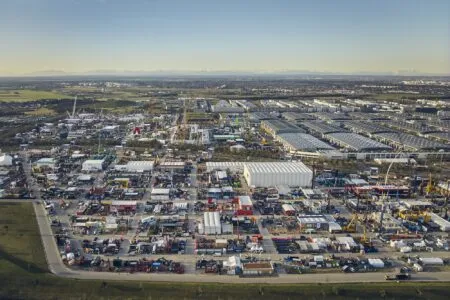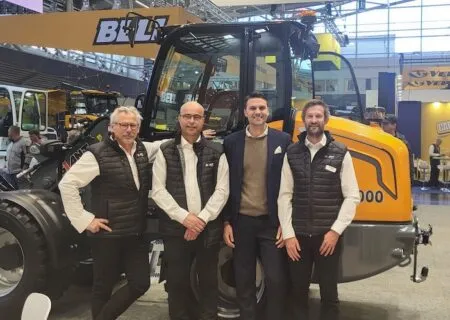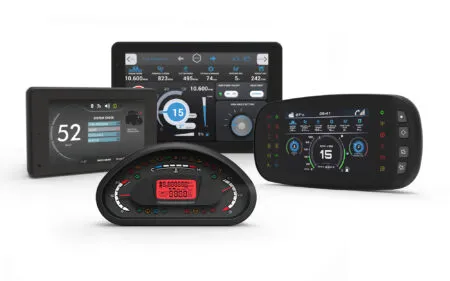Broken down into two highly-focussed streams and running concurrent to the exhibition, this year’s iVT Expo conference features more than 80 experts addressing the critical trends shaping future vehicle development. iVT International spoke with three of them
***
Speaker: Dr Markus Wallmyr, UX and innovation lead, CrossControl
Specialist subject: Key factors for a successful interaction design

What are the top trends that you think will transform the off-highway vehicles industry in the next five years?
We will for sure see more electrification and higher level of autonomy, but we cannot just follow in the footsteps of automotive, we need to understand how to do this in the industrial vehicle context.
For this to succeed we will have to move in human machine interaction, as these industry advances will require deeper knowledge about the work processes performed and how we support the changing role of the operator.
Consequently, as a third trend, we need to adopt system architectures that can efficiently handle the growing software content and advanced sensors interpretation needed. I think we will see systems with centralised, more powerful computing units where you can use more elaborate middleware and toolchains to manage software complexity and ensure cyber security.
Can sustainability and efficiency go hand in hand for future machines?
Looking at the future through history we saw that industrialization and mobile machinery immensely increased productivity. The great hardware and powerful software that is becoming available gives the possibility to step into a new era, driven by data, optimisations and new solutions, that will pave the way for improved sustainability and better efficiency. That larger governmental bodies are committing to climate neutrality and sustainability is a key driver, as they have the resources and power to drive new innovative solutions. But we are also seeing a lot of movement in key industrial areas such as agriculture and construction.
What are you going to be talking about in Cologne, and what will be the key audience takeaways?
I’ll talk about the benefits and needs of good human machine interaction, especially in this age of improved digitalisation. I will discuss how best practices can be adopted to great effect and share how industry gains.
As examples I will cover how the solutions and platforms provided by Crosscontrol can be used to create new values for both system providers and end users.
***
Speaker: Dr Manuel Boes, head of emerging technologies, Liebherr Group
Specialist subject: Smart machine features of the future and their validation

What are the top trends you think will transform the industry in the next five years?
In my view the overarching topics are decarbonisation, and solutions to counter the lack of skilled labour. The first subject is especially interesting in the mobile machinery industry since the spectrum of machines and use-cases is extremely broad when it comes to factors such as energy throughput per work shift, peak and average power demands, availability of charging/refuelling infrastructure around the machines etc. There is no one alternative energy solution for all of those machines, which means OEMs, suppliers and end-users have to be open to deal with a wide range of possible solutions in the coming years.
The second topic is a different, but also a very interesting challenge. As with the power and energy requirements per machine and use-case there is a similar wide spectrum when it comes to the operational complexity how machines are used. On one end there are complex processes which require the skill, ingenuity and problem-solving capability of expert operators (which are in high demand), while on the other hand many use-cases are characterized by monotony and boredom. In all applications operators are handling heavy and powerful machines, so safety (and potential dangers) are always critical factors. A multitude of solutions is needed to benefit customers over the whole range of applications.
What are the barriers the industry needs to overcome to commercialise large adaption of future off-highway vehicles?
One of the major challenges is that the volumes of the off-highway industry when it comes to machines sold per year is relatively low compared to other industries, while portfolio variety and complexity is large. This means that especially when new technologies in the field of drive-train solutions as well as automation or operator assistance systems are needed, having the costs under control is a major challenge. Modular machine concepts and a tool-kit approach are key to being able to provide the variety the customer needs while keeping internal complexity low and volumes on component level high.
What are you going to be talking about in Cologne, and what will be the key audience takeaways?
I will provide some insight on how Liebherr and especially the earth-moving division continues to position itself as a solution provider to our customers. While we already have a wide range of solutions and products available today, there is a very interesting path ahead of us. Technology-openness is not just a saying for us, but a necessity if we want to be successful together with our customers.
***
Speaker: Carlos Mendes, product manager for switching, Durakool
Specialist subject: Designing the optimal switch for your HV battery

What are the top trends that you think will transform the off-highway vehicles industry in the next five years?
Electrification will play a key role in the transformation of off-highway vehicles industry. The need to reduce emissions, lower operating costs, and meet regulatory requirements is already in full swing based on the demand we’re seeing for ever-increasing voltages of high voltage DC contactors in smaller packages.
Another trend we’re seeing is the rise in telematics, and communication in off-highway vehicles to capture and analyse vast amounts of data which is being used to improve vehicle performance, enhance safety, and offer new services. This will further be accelerated by AI, and it’s use in analysing said data.
What are the top three barriers that the industry needs to overcome to commercialise large adaption of future off-highway vehicles?
Adapting to new powertrain technologies and regulations is becoming
a major disruptive force in the off-highway industry. Overcoming the high capital cost of batteries, components, and infrastructure such as charging and grid connectivity. Also, the issue of duty cycle; sustainable technologies like batteries or hydrogen will need to match the performance of traditional ICE machines.
What are you going to be talking about in Cologne, and what will be the key audience takeaways?
I will be talking about the pivotal role of relays and contactors in off-highway vehicles. Explaining the challenges posed by increasing battery voltages and currents and the need for ruggedness and reliability in such vehicles. I plan to discuss the design features and innovative solutions to address those challenges to meet customer demands for reliable higher-voltage and higher-current switching, in smaller and lighter packaging.
The key takeaways for the audience will be better understanding to select the right relay or contactor for their application and design modification of relays to enhance safety by preventing potential hazards when using high-voltage systems.





